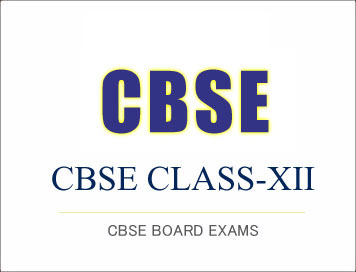CBSE 2017-18 Syllabus Class-12 :Human Rights and Gender Studies
Disclaimer: This website is NOT associated with CBSE, for official website of CBSE visit - www.cbse.gov.in

CBSE Class-12 Syllabus 2017-18
Subject: Human Rights and Gender Studies
Rationale
Today economic integration and advancement in communications have brought all parts of the world closer together, human rights are increasingly recognized as a unifying moral force that transcends national boundaries and empowers ordinary people everywhere to demand that their governments be accountable for the protection and promotion of their human rights. The mandate for human rights education is unequivocal: you have a human right to know your rights. According to NCF 2005, - The concept of human rights has a universal frame of reference. It is imperative that children are introduced to universal values in a manner
appropriate for their age. Reference to day-to-day issues, e.g. the problem of getting water, can be discussed so that young students become aware of issues related to human dignity and rights.The Preamble to the Universal Declaration of Human Rights (UDHR) exhorts "every individual and every organ of society" to "strive by teaching and education to promote respect for these rights and freedoms." Article 30 of the UDHR declares that one goal of education should be "the strengthening of respect for human rights and fundamental freedoms." The education systems need to reflect commitment to human rights. The specific objective that are desired to be achieved are:
- to create awareness and understanding regarding law and the administration of justice
- to create basic awareness about equality of opportunity and access to public services including education and health
- to sensitize and create better understanding about equality of opportunity in the access to justice
- according to different parameters such as gender, age, diversity of background etc.
- to create awareness regarding civic and social rights and responsibilities
- to create awareness regarding consumer rights (right to know, right to redress, right to information, right to public services free of corruption)
- to enhance understanding and sensitivity towards issues related to violence.
- to create awareness and sesitize towards identity (Linguistic, Cultural, Ethinic and Religions)
This course is intended to make students aware of the ways in which gender is “taken for granted” and how gender is learned, the implications of gender for our lives, and prospects for change so far as men and women are able to combine and/or reject elements of traditional masculinity and femininity. The course will look at gender within the context of different social institutions (e.g. the family, the workplace, education, etc.) and look at ways in which gender roles are maintained by these institutions, and/or effectively learned through socialization. Specific learning objectives are to:
- have an understanding of the history of gender and the division of labour based on this;
- attempt to consider which human behaviours are biologically motivated and which are a product of cultural differences;
- have a better understanding of oneself and the society in which one operates;
- understand the institutionalization of gender of politics, economics, language, family, and socialization;
- understand the concepts of gender stereotypes and sexism as a form of discrimination.
- generate and innovate with ideas including technologies to express themselves as citizens, consumers and imaginative beings
CLICK HERE TO DOWNLOAD
Courtesy: CBSE